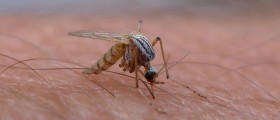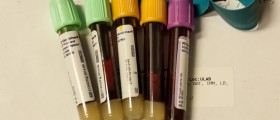
A malaria infection is characterized by fever, headache,nausea, vomiting and all other symptoms that resemble the flu. The infectionmay occur even if one takes anti-malarial drugs and the symptoms largely depends on the type of plasmodium which causes the infection in the first place. Plasmodiumfalciparum, plasmodium vivax and plasmodium ovale all take up to two weeks toshow symptoms while plasmodium malaria can take up to a month for the symptomsto kick in.
Not all symptoms of malaria are that dramatic in nature and shouldnot be dismissed that easily. Sometimes the symptoms can come and go on theirown in different time frames. These changes happen because the circle of lifeof the parasite changes and includes their development, maturing, reproduction andtheir re-release into the blood to spread the infection further. When this stageof infection occurs it is easily recognizable by shivering, fever and intenseperspiration. If the condition does not get treated on time, furthercomplications may include delirium and coma induced by the damage done to thekidneys and the brain.
Malaria is usually easily recognized by the symptoms thatare similar to flu symptoms and they includes fever, sweating, nausea, vomiting,rigors, headaches, cough, diarrhea, abdominal pain, tiredness, myalgia of thelimbs and the back, orthostatic hypotension, slight jaundice, enlarged liverand an enlarged spleen. Fever should not be the cause of worries, but if itoccurs in malaria-risk areas one should ask for immediate medical attention. Malariais usually treated by drugs which are bases on quinine or by a therapy whichconsists of a combination of drugs. These drugs are usually based onartemisinin and are very expensive.
Sometimes a relapsing type of malaria mayget developed even months after being infected and in spite of allanti-malarial drugs taken. The drugs prevents the effect of acute malariabecause they suppress the infection in the bloodstream but they simply cannotprevent relapsing types of infection because certain types of parasites have amuch more persistent liver phase.
Plasmodium falciparum is the most common type of malaria andit cannot have a relapsing phase. All the other strains of malaria can bedormant in the infected liver and hibernate there for months or even yearsafter a person has been exposed to the infection. Chloroquine is used for restraining the acute symptoms and once that has been taken care of, furthertreatment involves primaquine which is used for the liver infection.

















Your thoughts on this
Loading...